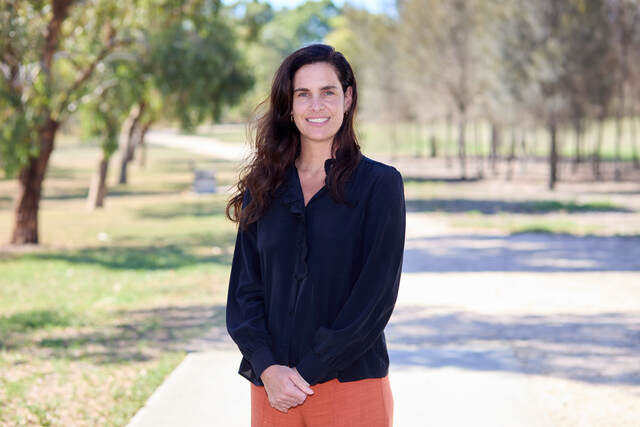Frustrated commuters are taking to social media to attack Metro Trains’ performance on and off the tracks.
Commuters left stranded on platforms as temperatures hit 40 degrees late last month took to Twitter to complain about services and then complained again about the response they received.
The outpouring of frustration comes amid calls for the rail operator to increase its Twitter presence on high traffic days.
The Metro Trains Twitter account, which is managed by a communications team, copped a barrage of abuse from hot and bothered commuters frustrated by failing services as the mercury soared.
The rail company’s “less formal” approach to its social media interaction riled some of its 36,273 followers, who were already hot under the collar.
“Dear Cool Change, on behalf of Melbourne we welcome you with open arms,” Metro Trains tweeted last month.
Amanda Hayes (@hayesey) responded:
“The cool change might be here but not in this non air conditioned train I’m in. This a joke and NOT acceptable!!!”
@metrotrains yeh the cool change might be here but not in this non air conditioned train im in. This a joke and NOT acceptable!!!
— Amanda Hayes (@hayesey_x) January 17, 2014
A Public Transport Users Association spokesman said Metro had improved its social media interaction in the past year but it was still “not perfect”.
“There are some inconsistencies – sometimes individual cancellations are shown on Twitter, sometimes not,” he said.
Metro should look at providing more comprehensive information and extending the operating hours for the Twitter updates, the PTUA spokesman said.
“Particularly on event nights such as major cricket and football games, when large numbers of people are catching trains.”
The PTUA spokesman also said there was no reason why Metro could not set up separate Twitter accounts for individual train lines.
“V/Line has taken this approach, and people do appreciate being able to get those updates,” the spokesman said.
Metro’s social media policy makes no apologies for failing to keep up to date with service issues via Twitter.
“We accept no responsibility where disruption information is not able to be provided via social media,” the policy states.
The account itself is monitored from 6am to 7pm Monday to Friday and 8am to 6pm Saturday to Sunday.
Metro Trains spokesperson Daniel Hoare said there are no plans to extend the hours the account is monitored.
The interaction between Twitter user Daniel Atkin and Metro staff highlighted the need for constant monitoring of social media.
“Seriously @Metrotrains as if we have to wait 20 mins for a train at ringwood to lilydale in 40 degree heat after an hour plus ride from the city,” Daniel tweeted.
“Either be engaged or (on) twitter or dont (sic) bother – a selective social media presnce (sic) just pisses customers off.”
Metro responded:
“We’re attempting to respond to everything. As you can imagine there are a few tweets coming in.”
Other exchanges throughout the heatwave included:
Ashley Manos:
You are unable to even keep the line status updates that you proudly cite as the src (source) of all truth up to date. #youarejustsoshit
Metro Trains:
And which line would you be referring to? #youarejustsopolite
@a_s_h_m_a_n_o_s and which line would you be referring to? #youarejustsopolite
— Metro Trains (@metrotrains) January 17, 2014
Emily Pyper
Air conditioning on the 3.17 from box hill to flinders street is shocking you told us to leave work early so I did. #havingamare
Metro Trains
what do you mean by ‘shocking’?
@emmypyper what do you mean by ‘shocking’?
— Metro Trains (@metrotrains) January 17, 2014
Bec
How f###ing hard it it to run trains? On a ‘South Moran’ train that magically turns into a f###ing ‘Hurstbridge’ train.
Metro Trains
and where did said effing train change it’s destination?
Mr Hoare said there was an increase in “all forms of communication” in January and that:
“Social media is often less formal than other methods of communication”.
“We use Twitter to provide some network information as well as to engage our customers,” Mr Hoare said.
Swinburne University technology expert Rajesh Vasa said Metro appeared to be doing its best to “manage the situation” but noted companies with effective online interaction maintained a constant online presence.
“Companies do frequently cop criticism,” Mr Vasa said.
“However the majority of tweets (or memes) have a very short life span. So, if the criticism is not reinforced regularly, it will just not stick. So, there will be a short span of venting, then people move on.”
Mr Vasa said Metro’s informal approach to Twitter was not ideal.
“The casual approach tends to work better when dealing with people that are not under stress/strain.
“Given the heat, delays are likely to agitate people. A safe strategy is to stay focused on communicating facts, and be brief in the apology.
“Any conversation that goes back and forth multiple times effectively causes more damage as it keeps the negative vibe/meme alive.
“Colloquially speaking, we are ‘feeding the trolls’.”
Mr Vasa said Qantas and Coles are two companies with effective social media presence.
“They are quick to comment and engage. They are also careful not to engage in long conversations. They now monitor and respond nearly 24/7.”
Companies will continue to improve their social media interaction over time, Mr Vasa said.
“Overall, companies are getting better at using social media and over the next few years I anticipate good practices to evolve for each main domain.”
“The cool change might be here but not in this non air conditioned train I’m in. This a joke and NOT acceptable!!!”
<blockquote class=”twitter-tweet” lang=”en”><p><a href=”https://twitter.com/metrotrains”>@metrotrains</a> yeh the cool change might be here but not in this non air conditioned train im in. This a joke and NOT acceptable!!!</p>— Amanda Hayes (@hayesey_x) <a href=”https://twitter.com/hayesey_x/statuses/424066321467179008”>January 17, 2014</a></blockquote>
<script async src=”//platform.twitter.com/widgets.js” charset=”utf-8”></script>
A Public Transport Users Association spokesman said Metro had improved its social media interaction in the past year but it was still “not perfect”.
“There are some inconsistencies – sometimes individual cancellations are shown on Twitter, sometimes not,” he said.
Metro should look at providing more comprehensive information and extending the operating hours for the Twitter updates, the PTUA spokesman said.
“Particularly on event nights such as major cricket and football games, when large numbers of people are catching trains.”
The PTUA spokesman also said there was no reason why Metro could not set up separate Twitter accounts for individual train lines.
“V/Line has taken this approach, and people do appreciate being able to get those updates,” the spokesman said.
Metro’s social media policy makes no apologies for failing to keep up to date with service issues via Twitter.
“We accept no responsibility where disruption information is not able to be provided via social media,” the policy states.
The account itself is monitored from 6am to 7pm Monday to Friday and 8am to 6pm Saturday to Sunday.
Metro Trains spokesperson Daniel Hoare said there are no plans to extend the hours the account is monitored.
The interaction between Twitter user Daniel Atkin and Metro staff highlighted the need for constant monitoring of social media.
“Seriously @Metrotrains as if we have to wait 20 mins for a train at ringwood to lilydale in 40 degree heat after an hour plus ride from the city,” Daniel tweeted.
“Either be engaged or (on) twitter or dont (sic) bother – a selective social media presnce (sic) just pisses customers off.”
Metro responded:
“We’re attempting to respond to everything. As you can imagine there are a few tweets coming in.”
Other exchanges throughout the heatwave included:
Ashley Manos:
You are unable to even keep the line status updates that you proudly cite as the src (source) of all truth up to date. #youarejustsoshit
<blockquote class=”twitter-tweet” lang=”en”><p><a href=”https://twitter.com/metrotrains”>@metrotrains</a> You are unable to even keep the line status updates that you proudly cite as the src of all truth up to date. <a href=”https://twitter.com/search?q=%23youarejustsoshit&src=hash”>#youarejustsoshit</a></p>— Ashley Manos (@a_s_h_m_a_n_o_s) <a href=”https://twitter.com/a_s_h_m_a_n_o_s/statuses/424068191254364160”>January 17, 2014</a></blockquote>
<script async src=”//platform.twitter.com/widgets.js” charset=”utf-8”></script>
Metro Trains:
And which line would you be referring to? #youarejustsopolite
<blockquote class=”twitter-tweet” lang=”en”><p><a href=”https://twitter.com/a_s_h_m_a_n_o_s”>@a_s_h_m_a_n_o_s</a> and which line would you be referring to? <a href=”https://twitter.com/search?q=%23youarejustsopolite&src=hash”>#youarejustsopolite</a></p>— Metro Trains (@metrotrains) <a href=”https://twitter.com/metrotrains/statuses/424068806940438528”>January 17, 2014</a></blockquote>
<script async src=”//platform.twitter.com/widgets.js” charset=”utf-8”></script>
Emily Pyper
Air conditioning on the 3.17 from box hill to flinders street is shocking you told us to leave work early so I did. #havingamare
<blockquote class=”twitter-tweet” lang=”en”><p><a href=”https://twitter.com/metrotrains”>@metrotrains</a> air conditioning on the 3.17 from boxhill to flinders street is shocking you told us to leave work earlyso I did. <a href=”https://twitter.com/search?q=%23havingamare&src=hash”>#havingamare</a></p>— Emily Pyper (@emmypyper) <a href=”https://twitter.com/emmypyper/statuses/424034582954913792”>January 17, 2014</a></blockquote>
<script async src=”//platform.twitter.com/widgets.js” charset=”utf-8”></script>
Metro Trains
what do you mean by ‘shocking’?
<blockquote class=”twitter-tweet” lang=”en”><p><a href=”https://twitter.com/emmypyper”>@emmypyper</a> what do you mean by 'shocking'?</p>— Metro Trains (@metrotrains) <a href=”https://twitter.com/metrotrains/statuses/424035348738367488”>January 17, 2014</a></blockquote>
<script async src=”//platform.twitter.com/widgets.js” charset=”utf-8”></script>
Bec
How f###ing hard it it to run trains? On a ‘South Moran’ train that magically turns into a f###ing ‘Hurstbridge’ train.
Metro Trains
and where did said effing train change it’s destination?
Mr Hoare said there was an increase in “all forms of communication” in January and that:
“Social media is often less formal than other methods of communication”.
“We use Twitter to provide some network information as well as to engage our customers,” Mr Hoare said.
Swinburne University technology expert Rajesh Vasa said Metro appeared to be doing its best to “manage the situation” but noted companies with effective online interaction maintained a constant online presence.
“Companies do frequently cop criticism,” Mr Vasa said.
“However the majority of tweets (or memes) have a very short life span. So, if the criticism is not reinforced regularly, it will just not stick. So, there will be a short span of venting, then people move on.”
Mr Vasa said Metro’s informal approach to Twitter was not ideal.
“The casual approach tends to work better when dealing with people that are not under stress/strain.
“Given the heat, delays are likely to agitate people. A safe strategy is to stay focused on communicating facts, and be brief in the apology.
“Any conversation that goes back and forth multiple times effectively causes more damage as it keeps the negative vibe/meme alive.
“Colloquially speaking, we are ‘feeding the trolls’.”
Mr Vasa said Qantas and Coles are two companies with effective social media presence.
“They are quick to comment and engage. They are also careful not to engage in long conversations. They now monitor and respond nearly 24/7.”
Companies will continue to improve their social media interaction over time, Mr Vasa said.
“Overall, companies are getting better at using social media and over the next few years I anticipate good practices to evolve for each main domain.”
// ]]>





